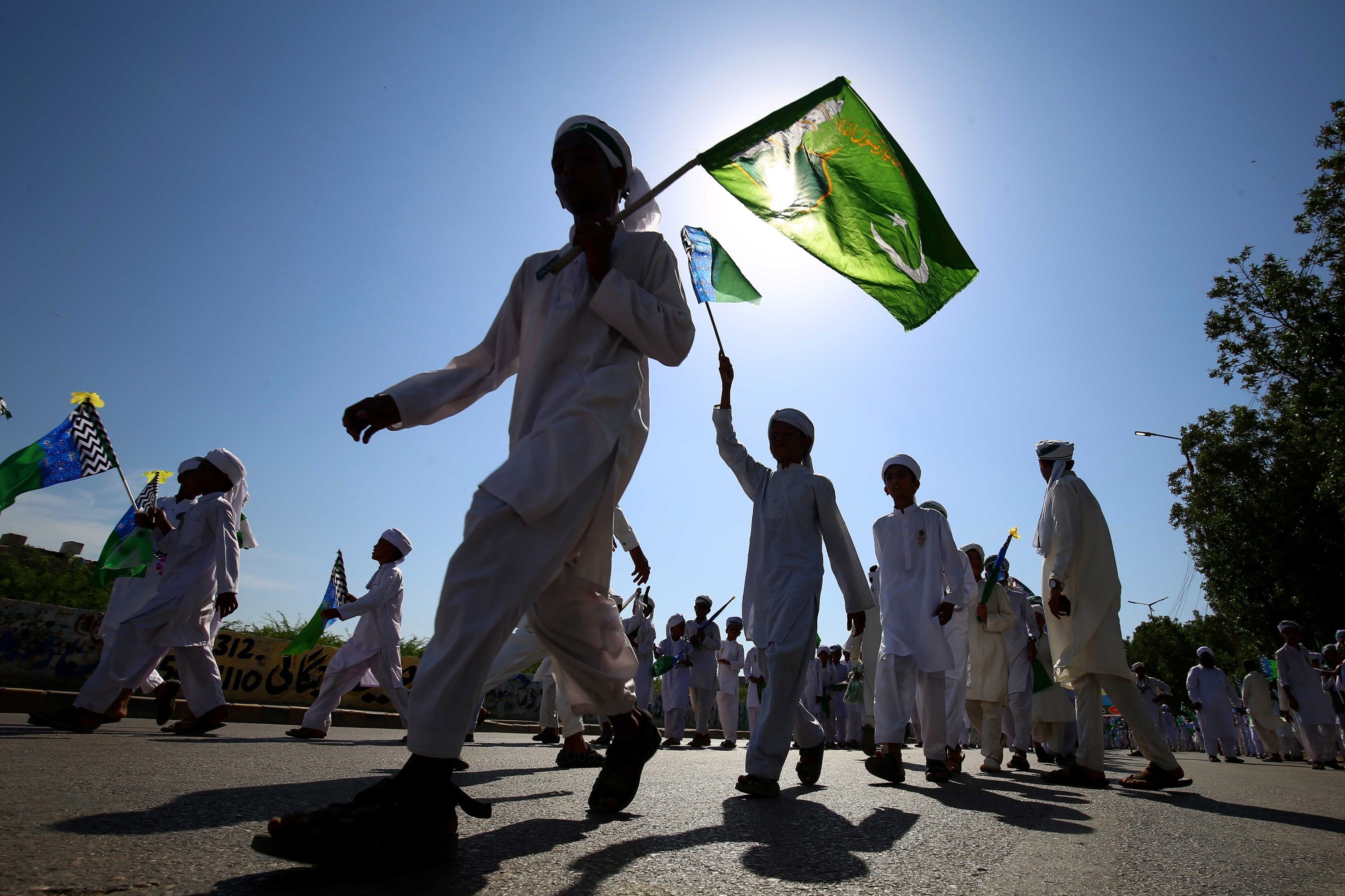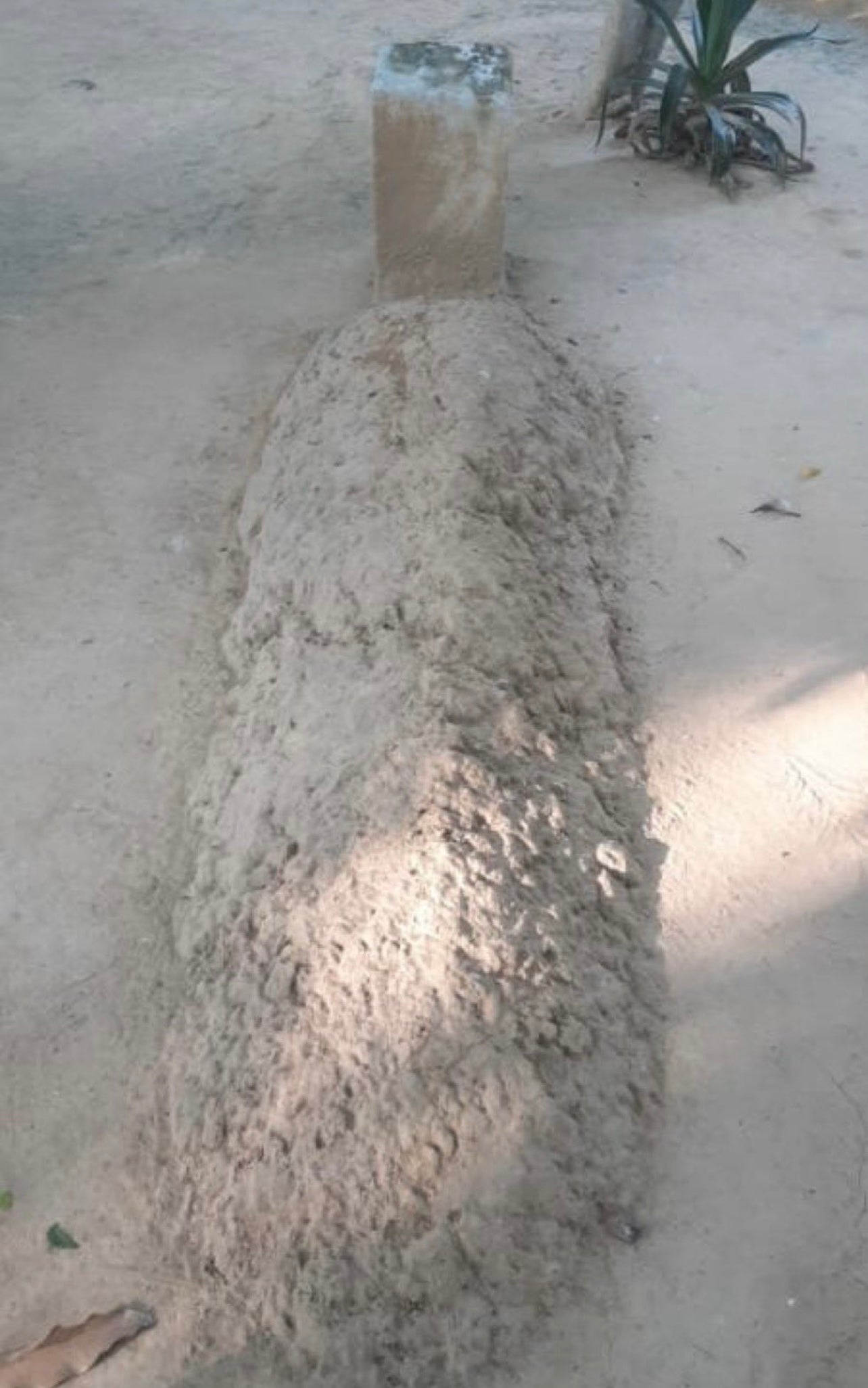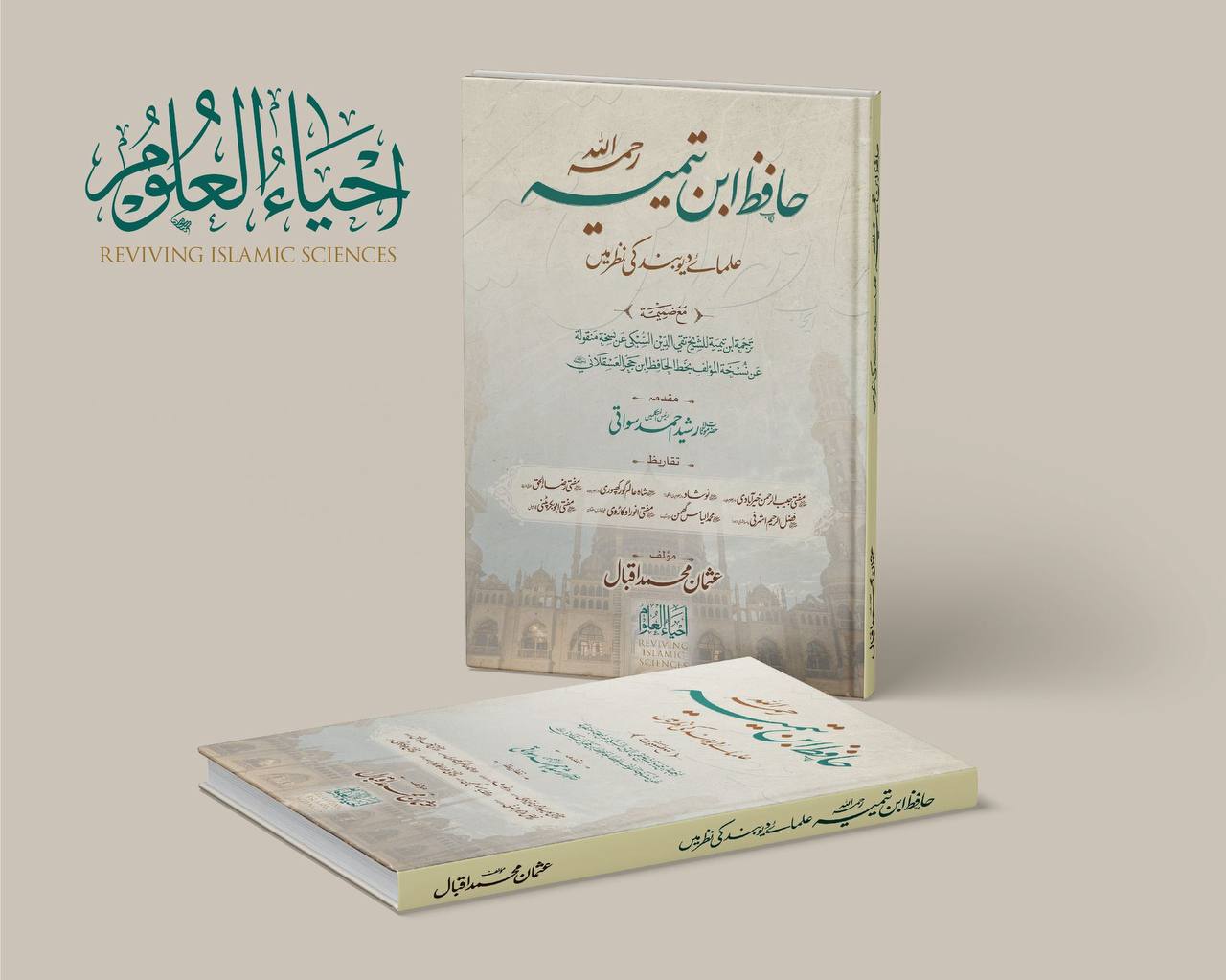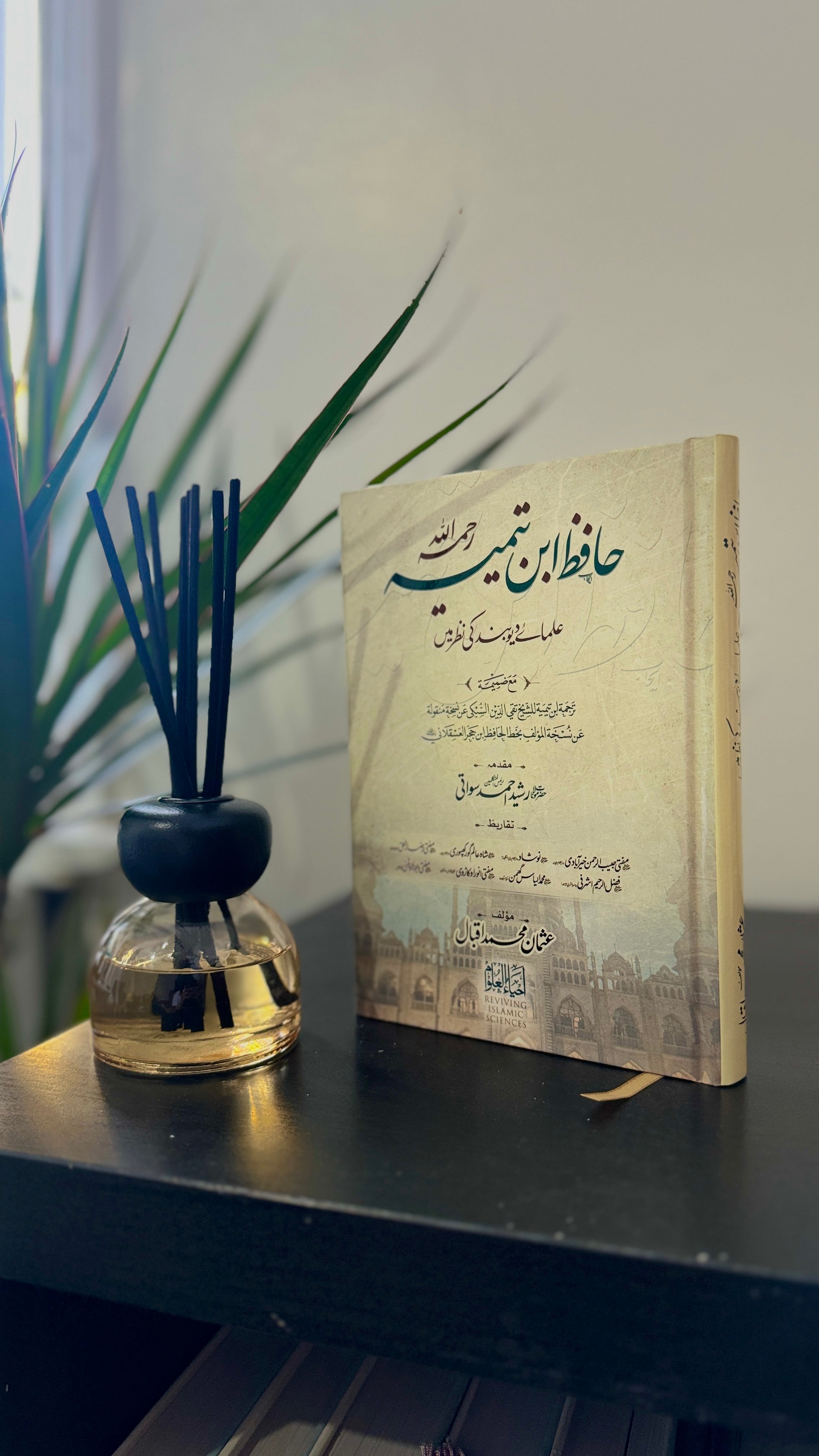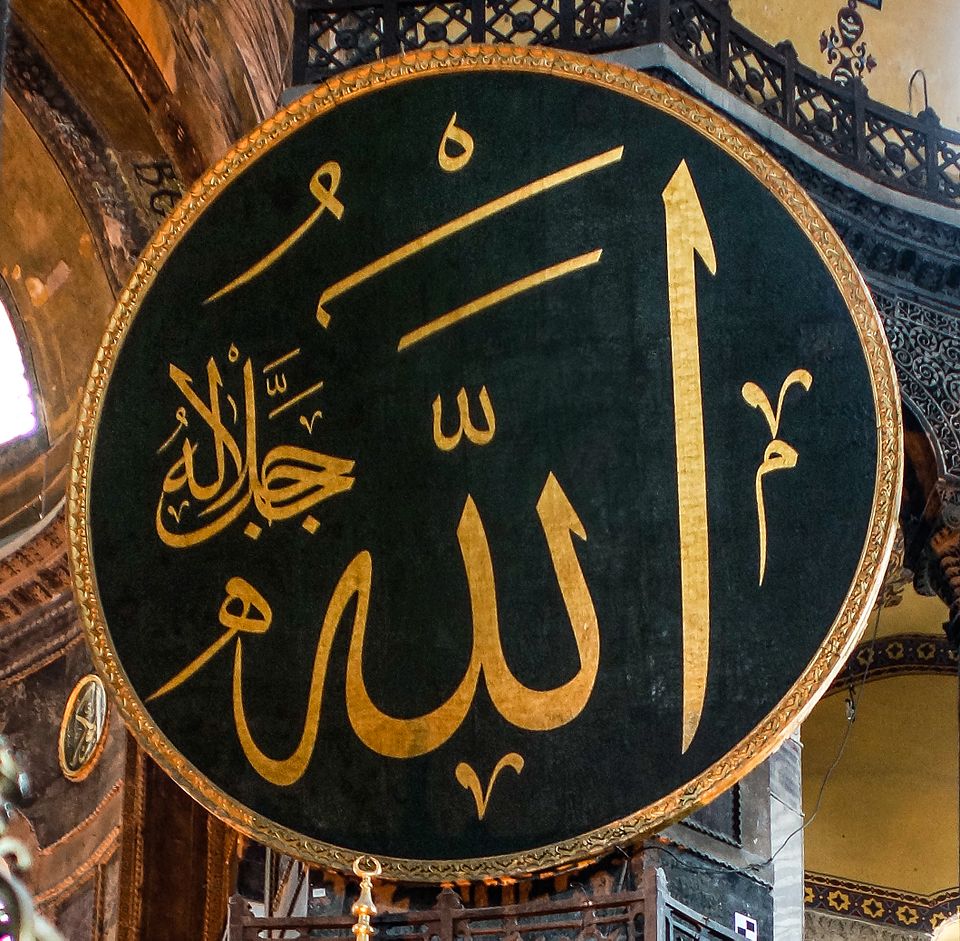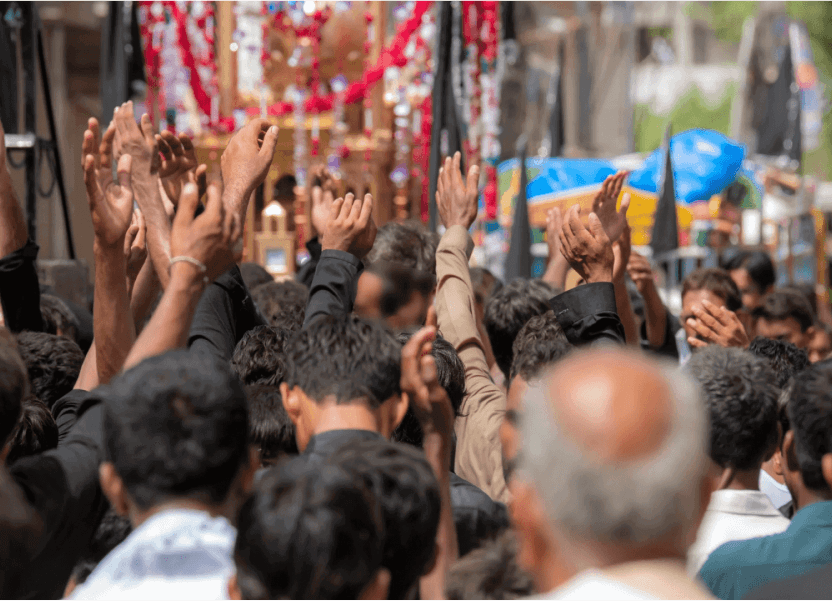
Disclaimer
Shiaism: A Brief Analysis
Author: Allamah Sarfaraz Khan Safdar
Publisher: Basaair Publications
First Edition: September 2013
Shiaism: A Brief Analysis
Contents
- Preface
- Sign of a religion’s veracity
- The founder of Shiaism was a Jew
- Enmity towards the noble companions
- A question for the Shias
- The testimony of a non-Muslim
- Martyrdom of Sayyiduna ‘Ali
- Martyrdom of Sayyiduna Husayn ibn ‘Ali
- So who betrayed and killed Sayyiduna Husayn?
Preface
All praise is for Allah, the Master of the Worlds, and Peace and blessings on the Leader of the Prophets, His Family and Companions, all of them.
Indeed, Allah Most High has favoured us greatly by making us part of the Ummah of Sayyiduna Muhammad ﷺ. The Holy Qur’an has been granted divine protection against change and interpolation. Allah Most High says:
“We, Ourselves, have sent down the dhikr (the Qur’an), and We are there to protect it.” (Surah Al-Hijr: 9)
In addition to the words of the Holy Qur’an being protected from literal interpolation, this holy book is also protected from interpolation in the meanings that it carries. The words and actions of the Messenger ﷺ explain the Qur’an; as a result, to be correctly understood the Holy Qur’an is intrinsically dependant on the hadiths of the Messenger ﷺ.
Both the Holy Qur’an and hadiths of the Messenger ﷺ have only reached us through the Noble Companions رضي الله عنهم, making them the strongest link between us and our faith. This link is such that Allah Most High has made them the universal benchmark of faith. Allah Most High says:
“Believe as the people have believed” (Surah al-Baqarah: 13). Ibn Kathir explains that the word people here refers to the Noble Companions. Allah Most High also says:
“So, if they (disbelievers) believe in the same way as you (Companions) believe, they will have certainly found the right path” (Surah al-Baqarah: 137).
We live in times in which many have deviated from the straight path due to their disregard for this solid link. When Allah Most High has endorsed the faith of the Companions as the benchmark that all should aspire to achieve, then who on earth has a right to question, scrutinise, accuse or oppose them؟
It is, hence, unfortunate to find Shias entertaining beliefs that are contrary to the Islamic ethos and with scant regard for the Companions of the Prophet ﷺ.
The Prophet ﷺ said:
“There was disagreement amongst the Jews and they split into seventy two groups. In exactly the same way, there will be disagreement and divisions in my Ummah. It will split into seventy three groups. Apart from one of those groups, all the remaining seventy two will be thrown into hell.”
When asked which group will be on the right path, the Prophet ﷺ replied:
“The group on the right path which will enter paradise will be the group which follows my Sunnah and that of my Companions and this will be the largest group of Muslims.”
(Sunan al-Tirmidhi, Musnad Ahmad, Sunan Abu Dawud)
The Prophet Muhammad ﷺ warned his Companions:
“I have left you upon clear proofs, its night is like its day, and no one deviates from it except one who is destroyed, and whoever lives (long) from amongst you will see great controversy. So stick to what you know from my Sunnah and the Sunnah of the rightly-guided Khalifahs; cling to that with your molar teeth.”
(Musnad Ahmad, Sunan Ibn Majah)
This booklet, which is an English translation of a chapter from Al-Kalam al-Hawi fi Tahqiq Ibarah al-Tahawi written by Shaykh Muhammad Sarfaraz Khan Safdar رحمه الله (d. 1430 AH) is a small effort to educate the Muslim masses about the errors of Shia beliefs with references from renowned Shia sources; this work is an attempt to fulfil the duty assigned to us by the Noble Messenger ﷺ in the following hadith:
“Defend my Companions, for, whoever defends my Companions will accompany me and come to me at the pool of Kawthar. And, whoever does not defend my companions will not come to me at the pool and they will not see me except from afar.”
(Shawkani in Durrus Sahaba)
Imam Abu Zur‘ah al-Razi رحمه الله states:
“When you see a person criticising any of the Companions of Allah’s Messenger ﷺ, know that he is an infidel. This is because according to us, the Messenger ﷺ is true and the Qur’an is true. It is only the Companions of Allah’s Messenger who conveyed the Qur’an and Sunnah to us. They [i.e. those who criticise them] intend to discredit our witnesses only to invalidate the Qur’an and the Sunnah, whereas they are more worthy of being discredited when they are infidels.”
(Al-Kifayah fi Ma‘rifah Usul ‘Ilm al-Riwayah)
May Allah enable us to meet the rights of the Companions رضي الله عنهم. Amin.
Shiaism: A Brief Analysis
Sign of a Religion’s Veracity
The truth and spirituality of any religion is based on the devotion and sincerity of its founder as well as the correctness, truthfulness and sincerity of its principles. If the one presenting the religion is truthful and accepted as truthful, and possesses a sublime character that is unmatched the world over, and the principles of the religion are such that they are totally flawless in the eyes of every individual of sound intellect, then that religion is accepted and worthy of being adopted.
If the founder of the religion is such as that of the Rafidhis and the principles are those found in Shiaism, then they are not acceptable to anyone of sound temperament. Who is the founder of Shiaism and what are Shia principles؟ I hereby present a brief but useful and accepted outline of Shiaism, supported by a number of references. Please read attentively.
The Founder of Shiaism Was a Jew
His name was ‘Abdullah ibn Wahb ibn Saba; Al-Miqrizi has mentioned this in [Mawaiz wa al-‘Itibar bi dhikr] al-Khitat wa al-Athar. It is also mentioned in the well-known Shia book Rijal al-Kashi (an authority in the classification of narrators):
Some people of knowledge have stated that ‘Abdullah ibn Saba was a Jew who embraced Islam and claimed love for ‘Ali (ra). While still a Jew he would exaggerate his opinion regarding Yusha‘ ibn Nun, the appointed successor of Musa. During his Islam after the demise of the Prophet of Allah he held the same opinion regarding ‘Ali (ra). He was the first to innovate the opinion of the imamah (infallible leadership) of ‘Ali, as well as severing all links with those who [in his opinion] opposed ‘Ali. He would expose the opponents of ‘Ali and call them unbelievers. Hence, it was due to this that the adversaries of Shias believe Shiaism to have stemmed from Jews.
Although the author of Rijal al-Kashi attributes the opinion that Shiaism stemmed from the Jews to his adversaries, the aforementioned passage accepts that:
[1] ‘Abdullah ibn Saba is the founder of Shiaism,
[2] the imamah of Sayyiduna ‘Ali (ra) is considered necessary,
[3] the severing of all ties with adversaries and considering them unbelievers and apostates (which are core beliefs of Shiaism),
[4] and the attribution of all of the above to ‘Abdullah ibn Saba.
The author has been just to mention that ‘Abdullah ibn Saba is a fundamental pillar from the founders of Shiaism but has stumbled by attributing [the Jewish connection] to their adversaries.
The lover’s foot has become entangled in the beloved’s long locks,
Behold, the hunter has been caught in his own trap.
The objective of this booklet is to prove that ‘Abdullah ibn Saba (a covert Jew) was among the founders of Shiaism who overtly embraced Islam and to some extent succeeded in his vow to destroy Islam. Based on Ibn Saba’s fundamental teachings, approximately eighty sects emerged in this single religion. Among these sects were the:
- Ghulat
- Kaysaniyyah
- Zaydiyyah
- Tafdiliyyah
- Imamiyyah
- Mu‘tazilah
- Jahamiyyah
- Karramiyyah, etc.,
All of which were offshoots of this single religion.
Enmity Towards the Noble Companions
We shall present a few preliminary words to simplify this issue.
One:
When the Prophet ﷺ was migrating to al-Madinah al-Munawwarah, the Quraysh of Makkah announced a reward of a hundred camels for anyone who kills or captures the Prophet ﷺ and Sayyiduna Abu Bakr رضي الله عنه.
As a result, Sayyiduna Suraqah ibn Malik (d. 24 ah) رضي الله عنه – who had not yet embraced Islam – pursued these two esteemed personalities. On seeing them he was set on his evil intention and intended to kill them. His horse, however, sank into the ground numerous times and he was unsuccessful. This entire incident is mentioned in detail in Sahih al-Bukhari (vol. 1, pg. 554).
Our purpose in mentioning this short historical piece – which the Hafiz of the Maghreb Yusuf ibn ‘Abdullah, commonly known as Ibn ‘Abdul Barr al-Maliki (d. 463 ah) has mentioned in Al-Istiy‘ab (Egyptian print, vol. 2, p. 581) and Hafiz ‘Izz al-Din ‘Ali ibn Muhammad ibn Athir (d. 630 ah) in Usd al-Ghabah fi Ma‘rifah al-Sahabah (vol. 3, p. 69) – is that the Prophet ﷺ said to Suraqah ibn Malik رضي الله عنه:
“What a blessed time it will be when you will be wearing Khosrau’s bracelets!”
This was a prophecy of the Prophet ﷺ granting him permission – with the order of Allah – to wear gold bracelets.
The Qur’an states:
“He [the Prophet] does not speak out of his own desire. It is but revelation revealed (to him)” (Surah Najm: 3–4).
Thus, there remains no opportunity for objection if the Prophet ﷺ grants someone an exemption from a command of Allah, nor does this necessitate that the Prophet ﷺ is endowed with absolute discretion (mukhtar al-kull).
It is a strange sight that this very individual whose kinsmen compelled him to leave his cherished homeland without sufficient bread to eat to his fill – and forget having a mansion; he did not even have comfortable dwellings let alone warm soft bedding – promises Suraqah ibn Malik رضي الله عنه the bracelets of Khosrau, with Allah’s permission.
A bed of earth and cap of rags,
This is the crown of Khosrau and the throne of Sulayman.
This prophecy was fulfilled in the golden caliphate of Sayyiduna ‘Umar رضي الله عنه, and Sayyiduna Suraqah ibn Malik رضي الله عنه was adorned with Khosrau’s bracelets in the Prophet’s ﷺ masjid. Those present witnessed the spectacle of the world’s volatility.
“What a blessed time it will be when you will be wearing Khosrau’s bracelets!”
The wisdom behind this that comes to mind is that the Prophet’s ﷺ statement implied:
O Suraqah! Today you desire to kill or capture the true Messenger of Allah for worldly gains, but what blessed a time it will be when you will be a Muslim, and Allah and His Messenger’s ﷺ pleasure will be better for you than the world and all that it contains. You will wear the bracelets of Khosrau and this bounty will only be acquired through obedience to Allah and His Messenger ﷺ. You will acquire faith in its complete form without compromising the world.
In this incident of migration, for Sayyiduna Abu Bakr رضي الله عنه to embark on a journey with the Prophet ﷺ while endangering his own life was no ordinary task.
Hence, exhibiting hostility towards such a saintly figure and refusing to accept his caliphate is synonymous with exhibiting enmity to Islam and the Messenger of Allah ﷺ – may Allah protect us.
What sort of service to Islam is it to harbour hatred and enmity towards the esteemed personality of Sayyiduna ‘Umar رضي الله عنه and refuse to acknowledge his rightful caliphate in which the Prophet’s ﷺ prophecy manifested itself when Khosrau’s treasures reached the Prophet’s ﷺ masjid?
Two:
Shias believe most of the Noble Companions رضي الله عنهم to be unbelievers and apostates; besides a selected three or four, the rest left Islam – we seek refuge with Allah.
(See the Shia book: Ihtijaj by Tabarsi, p. 48)
None from the Ummah offered allegiance (bay‘ah) [to Sayyiduna Abu Bakr رضي الله عنه] save ‘Ali and our four [individuals].
Meaning, according to Shias, everyone willingly pledged allegiance besides five personalities.
It is mentioned in the Shia book Hayat al-Qulub (vol. 2, p. 643):
It is narrated from Imam Baqir with a sound chain of narration that all the Companions had become apostates after the Prophet ﷺ passed away, besides three: Salman, Abu Dharr and Miqdad.
It is also mentioned in the Shia books:
- Kitab al-Ikhtisas
- Rawdah al-Kafi (p. 115)
- Rijal al-Kashi (p. 8)
- Ihtijaj Tabarsi (Iranian print, p. 48)
It is narrated from Abu Ja‘far who said that all of the people (meaning the Companions) became apostates after the Prophet ﷺ besides three: Miqdad, Abu Dharr and Salman.
It is stated in [the Shia book] Kitab al-Ikhtisas: I heard Abu ‘Abdullah رضي الله عنه say that when the Prophet ﷺ passed away all of his Companions became apostates except three: Salman, Abu Dharr and ‘Ammar.
Ponder over how there were one hundred and twenty four thousand Companions after the Prophet ﷺ - as mentioned in the Shia book Majma‘ Bihar al-Anwar (p. 564) - and despite the twenty three years of the Prophet’s ﷺ teachings, the outcome of the best of Ummahs was that they all became apostates after the Prophet ﷺ. Even the Companions of Sayyiduna Musa عليه السلام—who were sorcerers and then embraced Islam - responded to Pharaoh’s threats of severe punishment of execution and the like by saying: “So decide whatever you have to decide (we will not forsake the truth)” (Surah Taha: 72). This was even though they had only been blessed with a very short time in the company of Sayyiduna Musa عليه السلام.
In light of Shari‘ah principles, it is an accepted fact that the Ummah of the Prophet ﷺ is the best of Ummahs. هل it be the case that the Ummah of Sayyiduna Musa عليه السلام, which is lower in rank than the Ummah of the Prophet ﷺ, never became apostates after facing and hearing of trials and tribulations, while the best Ummah became apostates in spite of spending twenty three years in the company of the Prophet ﷺ and even though they were not faced with any difficulty؟ Is this not a direct attack on the lofty status of Prophethood؟ The Prophet ﷺ taught them for so long—day and night, during expeditions and at home, in the masjid and on the battlefield. However, when he left the world they all became apostates؟
It is on account of this that the Christian historian Godfrey Higgins wrote the truth regarding the Companions in his book An Apology for the Life and Character of the Celebrated Prophet of Arabia, called Mohamed, or the Illustrious:
The Christians would do well to recollect, that the doctrines of Mohamed created a degree of enthusiasm in his followers which is to be sought in vain in the immediate followers of Jesus, and that his religion spread with rapidity unexampled in that of the Christians. In less than half a century it became triumphant in many great and flourishing empires. When Jesus was led to the cross, his followers fled, their enthusiasm forsook them, and they left him to perish and if they were forbidden to defend him, they might have remained to comfort him, patiently setting at defiance his and their persecutors. The followers of Mohamed, on the contrary, rallied round their persecuted prophet, and, risking their lives in his defence, made him triumph over all his enemies.
Three: Shias slander the Companions as a whole and Sayyiduna ‘Umar رضي الله عنه in particular. Notice that in their gatherings they criticise Sayyiduna ‘Umar the most in comparison to other Companions رضي الله عنهم. Rather they fabricate many unbefitting incidents that they then attribute to him. Some are reproduced below:
a. Sayyiduna ‘Umar kicked Sayyida Fatima causing her to miscarry and he tied a rope around the neck of Sayyiduna ‘Ali, dragging him away by force to pledge allegiance to Sayyiduna Abu Bakr رضي الله عنهم. This is mentioned in a famous book of the Shias called Jala al-‘Uyun (vol. 1, p. 152).
How regretful is this؟ What happened to the bravery of Sayyiduna ‘Ali رضي الله عنه on account of which he ripped off the door of the fort of Khaybar؟ Where was the one who they remember with the words mushkil kusha (remover of all difficulties)؟ Try to correlate this fictional tale with the bravery of Sayyiduna ‘Ali رضي الله عنه. It should also be noted that the narration that mentions that Sayyiduna ‘Ali رضي الله عنه ripped off the door of Khaybar that seventy men failed to do so is fabricated. See Mizan al-I‘tidal (vol. 1, p. 142 and vol. 2, p. 218) and Al-Taqrib (p. 49).
b. Sayyiduna ‘Umar burnt the house of Sayyida Fatima رضي الله عنها. See Kitab al-Murtada (p. 45), Hadd al-Tahqiq (p. 332) and Al-Milal wa al-Nihal (vol. 1, p. 25) etc.
c. One narration [of the Shias] mentions that Sayyiduna ‘Umar whipped Sayyida Fatima رضي الله عنها which caused her immense distress.
d. Among other false incidents and baseless stories, the Shias believe that Sayyiduna ‘Umar was the one who instigated the issue of Fadak and the caliphate of Sayyiduna Abu Bakr رضي الله عنهم.
e. It is on account of this that some extreme individuals create effigies of Sayyiduna ‘Umar رضي الله عنه from flour which they then fill with honey and then strike with their swords while saying they have killed Sayyiduna ‘Umar رضي الله عنه. They then drink the honey and say we have drank his blood. This I have heard from some well-read scholars.
f. Shias express the harshest hatred for Sayyiduna ‘Umar, Sayyiduna Abu Bakr, Sayyiduna ‘Uthman and the Chaste Wives of the Prophet رضي الله عنهم.
It is stated in their renowned book Tuhfah al-‘Ulum (vol. 1, p. 20) that one should not get up off the prayer mat without cursing and expressing hatred for three of the Prophet’s ﷺ companions (Sayyiduna Abu Bakr, Sayyiduna ‘Umar and Sayyiduna ‘Uthman رضي الله عنهم) and two wives. The two chaste wives are Sayyida ‘Ayshah رضي الله عنها and Sayyida Hafsah رضي الله عنها.
A Question for the Shias
Shehar Bano, the daughter of Khosrau, was brought to Madinah in captivity as a slave-girl during the caliphate of Sayyidunā ʿUmar (رضي الله عنه). She was married to Sayyidunā Ḥusayn ibn ʿAlī (رضي الله عنه) and bore great Imāms, in particular Imām Zayn al-ʿĀbidīn. It is mentioned in [the Shia book] Uṣūl al-Kāfī (Kitāb al-Ḥujjah, p. 296, in the section regarding the birth of ʿAlī ibn al-Ḥusayn):
It is narrated from Abū Jaʿfar (عليه السلام) who said: “When the daughter of Yazdegerd appeared before ʿUmar … the Commander of the Faithful (عليه السلام) suggested: ‘You need not issue a ruling. Instead, just allow her to choose a Muslim man of her choice and consider her his share of booty.’ Hence, she was given a choice so she went and placed her hand on the head of Ḥusayn (عليه السلام). The Commander of the Faithful (عليه السلام) asked her: ‘What is your name?’ She replied: ‘Jahān Shāh.’ The Commander of the Faithful then said: ‘But your name is Shehar Bano.’ He then addressed Ḥusayn: ‘Oh Abā ʿAbdillāh! This woman will give birth for you the best person on earth.’ She later gave birth to ʿAlī ibn Ḥusayn…
Had the caliphate of Sayyidunā ʿUmar (رضي الله عنه) been a result of usurpation and if he were an apostate, then this would necessitate the booty he distributed as being unlawful and Shehar Bano would have also been unlawful. Thus, how could the Imām born from this ḥarām woman be an [infallible] Imām? Is this love for Ahl al-Bayt? Please clarify, may you be rewarded.
The Testimony of a Non-Muslim
At this point I would like to present a quote from Mohandas Gandhi (b. 1869 CE). Please read carefully. When the Indian National Congress emerged as a power in eight provinces in 1937 CE, Gandhi needed to present his ministers with the best role model of government and for this he cited the example of Sayyidunā Abū Bakr and Sayyidunā ʿUmar al-Fārūq (رضي الله عنهما). He writes:
History tells us of Pratap and Shivaji living in the utmost simplicity. But opinions may be divided as to what they did when they had power. There is no division of opinion about the Prophet, Abū Bakr and ʿUmar. They had the riches of the world at their feet. It will be difficult to find a historical parallel to match their rigorous life. ʿUmar would not brook the idea of his lieutenants living in distant provinces and using anything but coarse cloth and coarse flour. (July 17, 1937 in Harijan newspaper)
This testimony is not insignificant because, according to Muslims, only six or seven thousand years have passed of the world. However, according to the Hindu faith four epochs are common belief (Tārīkh-i-Firishta, vol. 1, p. 3):
- Satya Yuga – This epoch is 1,728,000 years. The average age in this epoch is 100,000 years.
- Treta Yuga – This epoch is 1,296,000 years. The average in this epoch is 10,000 years.
- Dwapar Yuga – This epoch is 864,000 years. The average age in this epoch is 1000 years. Hindus believe Sayyidunā Nūḥ (عليه السلام) lived in this epoch.
- Kali Yuga – This epoch is 432,000 years. The average age in this epoch is 100 years.
The first three epochs have certainly passed. They total 3,888,000 years. Some of the fourth epoch has also passed but we will take only the first three. Within this 3,888,000 years, Gandhi knew of the history of the Romans, the Amalekites, the Greeks, the Japanese, the Chinese, the British and his own Hindu history. Neither was he impressed by Rāmchandar Jī, Krishan Jī, Biyās Jī, or any of the other Rājās and Mahārājās. Instead, he claims that the rule of the likes of Sayyidunā Abū Bakr and Sayyidunā ʿUmar (رضي الله عنهما) cannot be found in the pages of history.
Beautiful is that woman, who is declared such by her [rival] co-wife,
True virtue is that which the enemy testifies to.
Martyrdom of Sayyidunā ʿAlī (رضي الله عنه)
We shall mention his death briefly as mentioned by al-Mubarrad (d. 285 AH) in his book al-Kāmil (Egyptian print, vol. 3, p. 113) and by Shaykh Muḥammad al-Ḥadārī (d. 1255 AH) in al-Muḥāḍarāt (vol. 2, p. 122 and also on p. 193). The Khawārij: ʿAbd al-Raḥmān ibn Muljim, Ḥajjāj ibn ʿAbdullāh al-Suraymī and Zādawaih, the freed slave (mawlā) of the Banū ʿAmr ibn Tamīm, decided in a meeting that each one of them would assassinate one of three esteemed personalities. ʿAbd al-Raḥmān ibn Muljim would assassinate Sayyidunā ʿAlī (رضي الله عنه) who was in Kūfah, Ḥajjāj ibn ʿAbdullāh for Sayyidunā Muʿāwiyah (رضي الله عنه) who was in Damascus, and Zādawaih would kill Sayyidunā ʿAmr ibn al-ʿĀṣ (رضي الله عنه) who was in Egypt. They fixed a specific night for these assassinations.
Ḥajjāj ibn ʿAbdullāh was unsuccessful in his attempt to assassinate Sayyidunā Muʿāwiyah (رضي الله عنه) and Zādawaih attacked a man called Khārijah thinking he was Sayyidunā ʿAmr (رضي الله عنه). On learning who he had killed he said: “I intended to kill ʿAmr but Allāh intended for Khārijah.” This statement later developed into a proverb. When someone sets out for something and it turns out different to what was intended they say this (Tārīkh Ibn Khallikān, Qāḍī Shams al-Dīn Aḥmad ibn Khallikān, d. 681 AH). ʿAbd al-Raḥmān ibn Muljim wounded Sayyidunā ʿAlī (رضي الله عنه) after dawn on Friday 18th Ramaḍān, 40 AH. He passed away on Sunday 21st Ramaḍān. Innā lillāhi wa innā ilayhi rājiʿūn. Shaykh al-Ḥadārī mentions: “He was buried in Kūfah which was the capital of his caliphate.” His caliphate lasted four years and a few days short of nine months. His total age was 63, 65, 70 or 75 (see al-Ikmāl, p. 603). The first is the most correct.
Martyrdom of Sayyidunā Ḥusayn ibn ʿAlī (رضي الله عنه)
Sayyidunā Ḥusayn (رضي الله عنه) was martyred on 10th Muḥarram, 61 AH. He had a mere eighty companions with him at the time—seventy-two of whom were martyred with him. Eighty-eight men of the opposition were killed in Ibn Saʿd’s army. As to who killed Sayyidunā Ḥusayn (رضي الله عنه) is not part of the subject matter here. My heart tells me to continue writing because of this [Persian] poem:
The (true) wayfarers never become weary on the path;
Love is their path and it is also their destination.
However, I shall suffice on a few points. It is as the [Urdu] poet says:
Bring the register of deaths so that I may also see,
Whose seal it is at the top.
Who killed Sayyidunā Ḥusayn (رضي الله عنه)? Was it Sayyidunā Muʿāwiyah (رضي الله عنه)? Certainly not! It is mentioned in the [Shia book] Jalāʾ al-ʿUyūn (p. 422) that Sayyidunā Muʿāwiyah (رضي الله عنه) specially advised Yazīd regarding Sayyidunā Ḥusayn (رضي الله عنه) that he is certain that the people of Iraq (Kūfah) will invite Sayyidunā Ḥusayn (رضي الله عنه) and subsequently betray and abandon him. [He said]:
O Yazīd, if you defeat them then take their sacred status and relation to the Prophet ﷺ into consideration. Do not punish them. Do not sever the connections I built with them in my time and let them not suffer.
It is stated in the Shia book Nāṣikh al-Tawārīkh (vol. 6, p. 111) that Sayyidunā Muʿāwiyah (رضي الله عنه) said:
My son, beware! Let it not be the case that when you are presented to Allāh on the Day of Judgement you are taken to account for the blood of Ḥusayn ibn ʿAlī…”
It is stated in the same book (vol. 2, p. 780) that Sayyidunā Muʿāwiyah (رضي الله عنه) said:
How can I stigmatise Ḥusayn when I find no fault in him?
All three references are from prominent Shia books which prove Sayyidunā Muʿāwiyah (رضي الله عنه) was neither the killer nor did he consent to the killing and that he was not present to witness the martyrdom.
So Who Betrayed and Killed Sayyiduna Husayn (رضي الله عنه)?
In Rabīʿ al-Awwal 41 AH, Sayyidunā Ḥasan (رضي الله عنه) concluded a treaty with Sayyidunā Muʿāwiyah (رضي الله عنهما) as had been prophesised by the Prophet (صلى الله عليه وسلم). There is a narration in Ṣaḥīḥ al-Bukhārī (vol. 1, p. 373) that the Prophet (صلى الله عليه وسلم) gestured towards Sayyidunā Ḥasan (رضي الله عنه) and said:
“This son of mine will be a leader and perhaps Allah will make peace between two great parties of the Muslims through him.”
At this point, the Shias responded to the treaty—as mentioned in [the Shia book] Jalāʾ al-ʿUyūn (p. 336)—by claiming Sayyidunā Ḥasan (رضي الله عنه) had humiliated them by making them slaves of the Banū Umayyah [family of Sayyidunā Muʿāwiyah, may Allah be pleased with him]. The Shias would disrespectfully address Sayyidunā Ḥasan (رضي الله عنه) by calling him:
- mudhill al-muʾminīn (the humiliator of the believers)
- ʿār al-muʾminīn (disgrace of the believers)
A Shia by the name of Sufyān ibn Abī Laylā would offer salām to Sayyidunā Ḥasan (رضي الله عنه) saying:
“Peace be upon you, O disgrace of the believers, peace be upon you, O humiliator of the believers.”
The Shias of Kūfah wrote to Sayyidunā Ḥusayn (رضي الله عنه) asking him to certainly visit Kūfah and enlighten it. They assured him they would pledge allegiance to him. Those who wrote to him were Shias by the names of:
- Sulaymān ibn Ṣard
- Musayyib ibn Nakhbah
- Rifāʿah ibn Shaddād
- Ḥabīb ibn Muẓāhir
(See the Shia books: Jalāʾ al-ʿUyūn, p. 43; Nāṣikh al-Tawārīkh, vol. 6, p. 131; and Mahij al-Aḥzān, p. 47-48)
After the Shias wrote twelve thousand letters, Sayyidunā Ḥusayn (رضي الله عنه) sent his cousin Sayyidunā Muslim ibn ʿAqīl (رضي الله عنه) to assess the situation for him (Jalāʾ al-ʿUyūn, p. 432). On reaching Kūfah, eighty thousand residents of Kūfah pledged their allegiance to Sayyidunā Muslim ibn ʿAqīl (رضي الله عنه) (Nāṣikh al-Tawārīkh, p. 133). The Shias wrote to Sayyidunā Ḥusayn (رضي الله عنه) stating that one thousand swords are prepared to assist him (Mahij al-Aḥzān, p. 55).
Deceived by their approach, Sayyidunā Muslim ibn ʿAqīl (رضي الله عنه) wrote to Sayyidunā Ḥusayn (رضي الله عنه) twenty-seven days prior to being martyred, inviting him to Kūfah, claiming that the people there seemed ever so sympathetic. In brief, they were the ones who martyred Sayyidunā Muslim ibn ʿAqīl (رضي الله عنه) (Nāṣikh al-Tawārīkh).
Now the question remains: who were the Kūfan residents who wrote the letters? Were they Sunnī or Shīʿah?
- The Shia writer Qāḍī Nūrullāh Shūshtarī writes in Majālis al-Muʾminīn (p. 25) that no evidence is required to prove the people of Kūfah were Shias. Rather, evidence is required to prove they were Sunnis. He also writes that although Imām Abū Ḥanīfah was a Sunni, but an insignificant minority is considered virtually non-existent.
- The letters Sayyidunā Ḥusayn (رضي الله عنه) received would state: “From so and so, son of so and so and all the Shias…”
- (See the Shia book: Nāṣikh al-Tawārīkh etc.)
- When the first plan to invite Sayyidunā Ḥusayn (رضي الله عنه) was hatched at the house of Sulaymān ibn Ṣard, he said:
- “You people are a part of his Shīʿah and his father’s Shīʿah.”
- (See Nāṣikh al-Tawārīkh and Jalāʾ al-ʿUyūn.)
When Sayyidunā Ḥusayn (رضي الله عنه) reached his army camp he remarked:
“What loyalty did you display to my father for me to expect loyalty from you now.”
When he got to his camp none of them were by him (Jalāʾ al-ʿUyūn, p. 312). Sayyidunā Ḥusayn (رضي الله عنه) repeatedly said:
“The Shias have betrayed us”
(Khulāṣah al-Maṣāʾib, p. 49; Nāṣikh al-Tawārīkh, p. 163; Jalāʾ al-ʿUyūn).
Sayyidunā Ḥusayn (رضي الله عنه) addressed them saying:
“Woe to you, O people of Kūfah! Have you forgotten your letters and your pledges? It is [you] the people of Kūfah who called me and these are your letters, but now you are the same people who are anxious to kill me.”
(See Shia books: Dhabḥ-i-ʿAẓīm, p. 335; Nāṣikh al-Tawārīkh, p. 159; Khulāṣah al-Maṣāʾib, p. 115)
Imām Zayn al-ʿĀbidīn (رضي الله عنه) states:
“When these people are the only ones who lament over us, who else [besides them] could have oppressed and killed our seniors?”
(Nāṣikh al-Tawārīkh, vol. 6, p. 243)
Sayyidah Zaynab (رضي الله عنها) said:
“O people of Kūfah. O traitors. You are the ones who killed us and you are the ones who lament over us too.”
(Jalāʾ al-ʿUyūn)
ʿAllāmah Khalīl al-Qazwīnī writes in Ṣāfī (commentary of Kāfī) that:
“After the Imām was martyred the ones who wrote the letters [to him] confessed to having committed a heinous crime and admitted that they ought to repent.”
(Majālis al-Muʾminīn)
However, what good is there in repenting after killing and instigating murder?
He repented from oppressing after murdering me,
What good is such intense remorse?
It is mentioned in Khulāṣah al-Maṣāʾib (p. 201), Nāṣikh al-Tawārīkh (vol. 6, p. 174) and Talkhīṣ Murqqaʿ Karbalāʾ (p. 10) that:
“There was not a single Syrian or Ḥijāzī among them [killers]; rather they were all residents of Kūfah.”
Till the present day, after murdering and instigating the murder of Sayyidunā Ḥusayn (رضي الله عنه), they have kept secret the identities of the killers and remain in mourning.
Can unlawful blood ever be hidden by concealing it?
Why are they sat around my corpse trying to hide the blood.
Supplicate to Allah Most High that He grants us the ability to understand the truth and remain firm on it. All praise is for Allah, at the beginning and at the end, both outwardly and inwardly. May Allah Most High send peace and blessings on the Prophet, his family, companions and wives.
The lowly servant of Allah,
[Shaykh] Muḥammad Sarfarāz Khān Ṣafdar
[May Allah have mercy upon him]
Explore Our Recent Insights
Dive deeper into Islamic knowledge and teachings.



